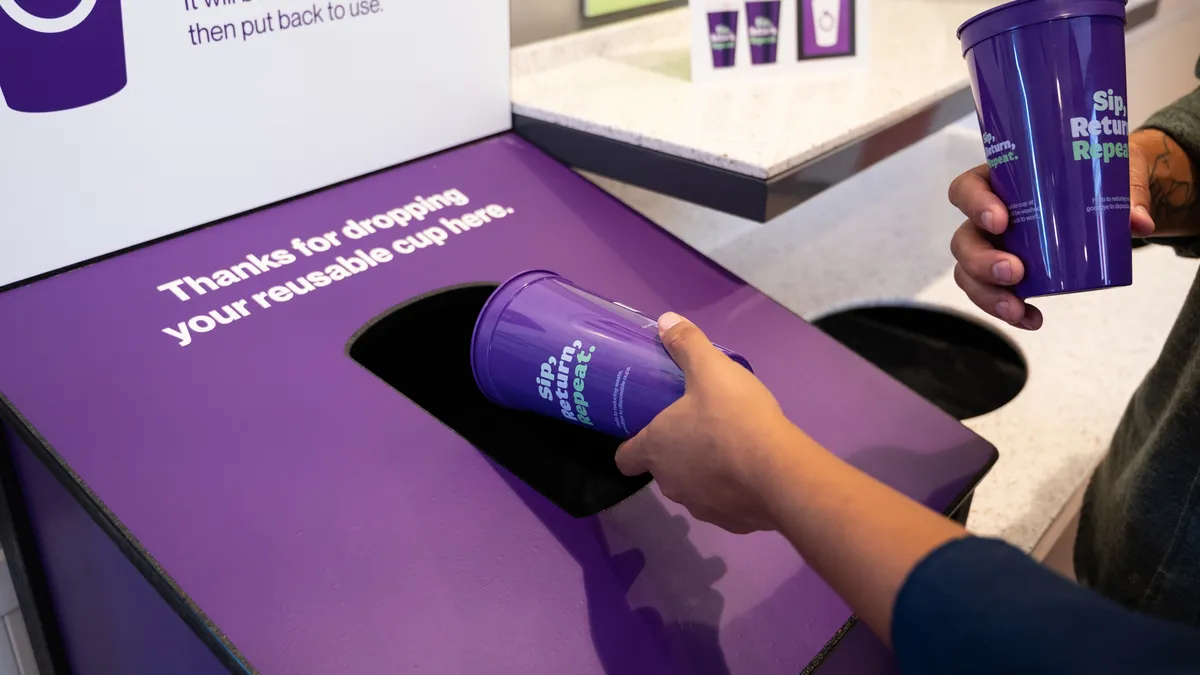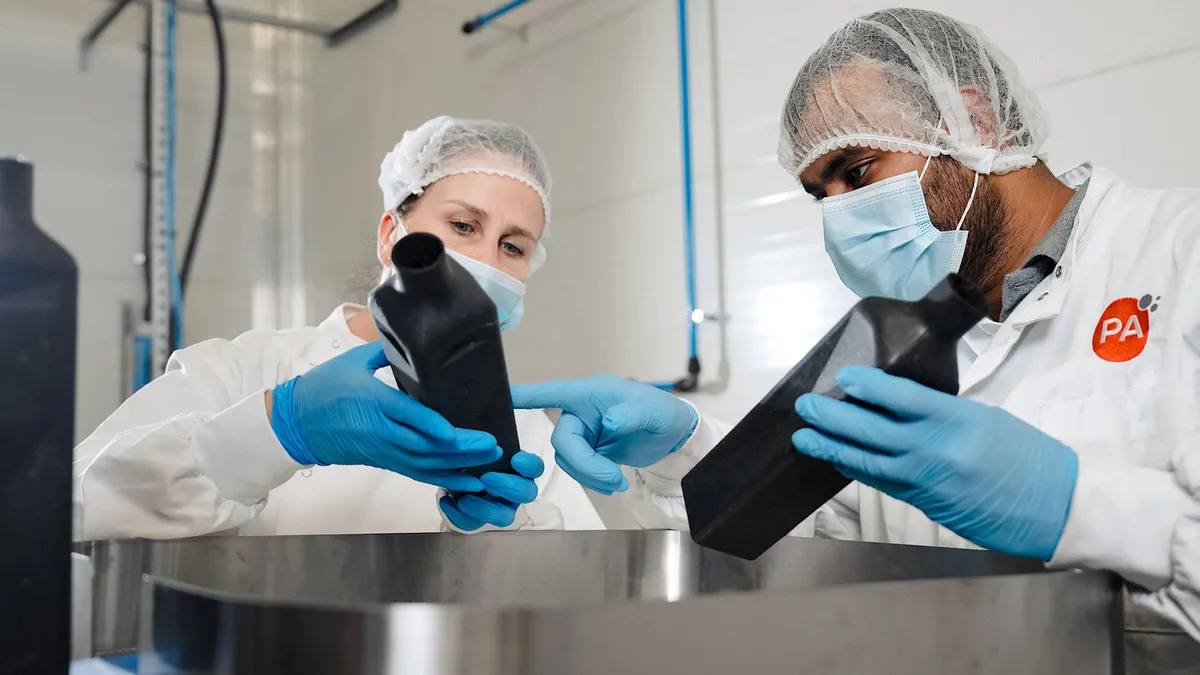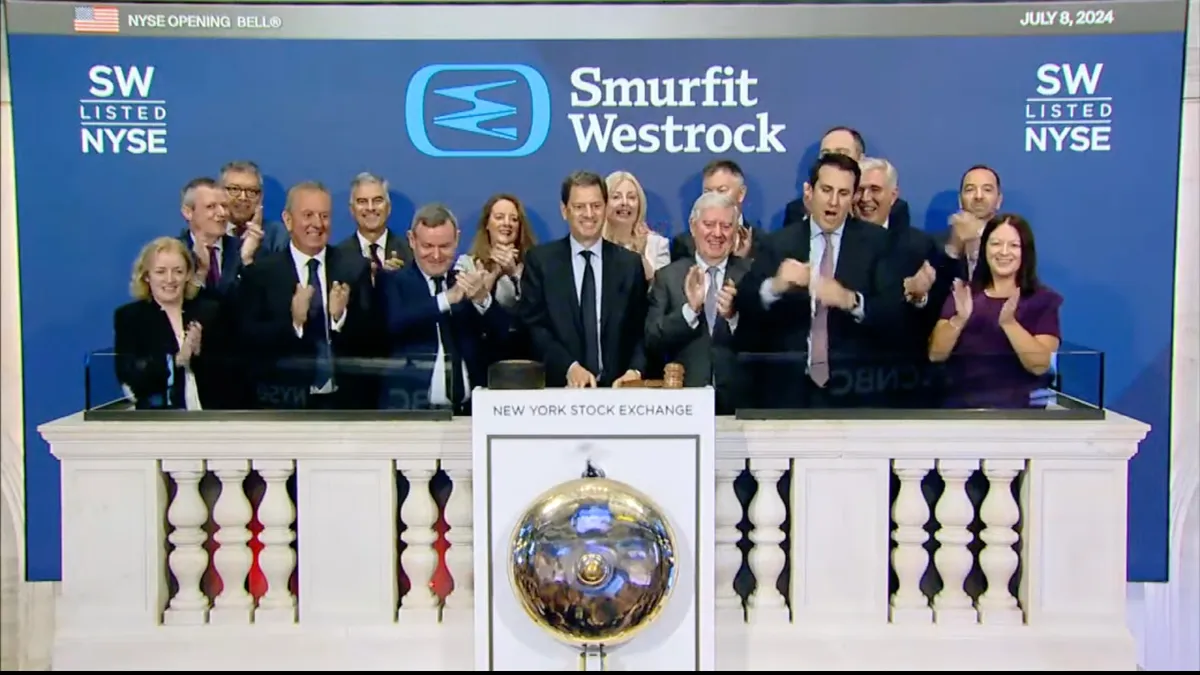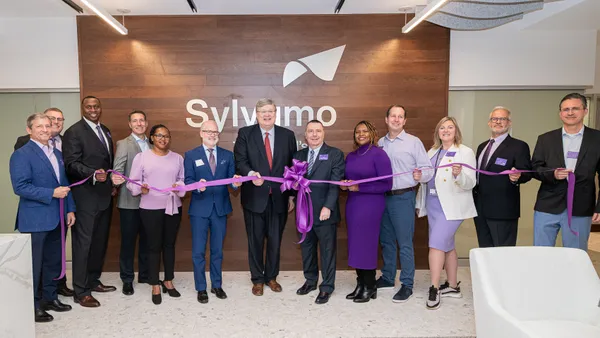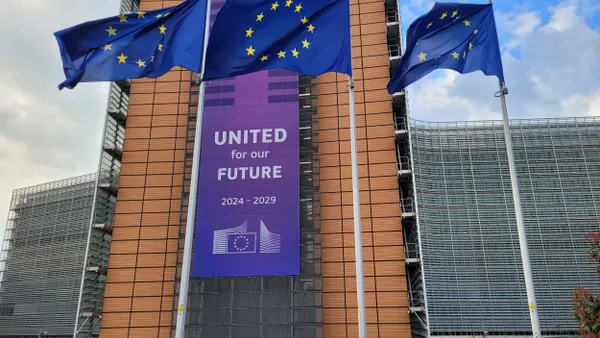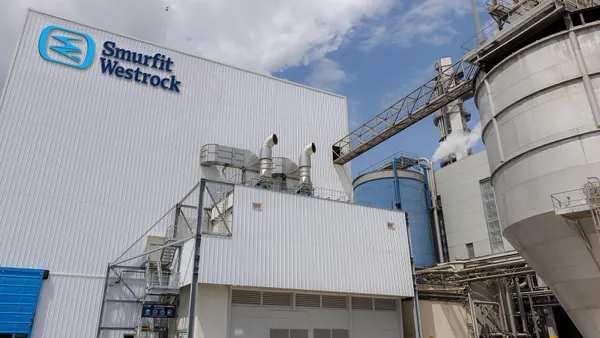Dive Brief:
- Dublin-based Smurfit Kappa and Atlanta-based WestRock disclosed late Wednesday they’re “discussing the key terms of a potential combination to create Smurfit WestRock.” The Wall Street Journal first reported Wednesday that the two were nearing a merger deal.
- The paper packaging giants say Smurfit WestRock would be incorporated in Ireland, with global headquarters in Dublin; North and South American operations would be headquartered in Atlanta. Shares of the combined group would be listed on the New York Stock Exchange.
- Smurfit WestRock would target more than $400 million in estimated pre-tax cost synergies at the end of the first full year following merger completion. The companies say they had combined revenue of approximately $34 billion, based on the year ended June 30.
Dive Insight:
Such a combination, if cleared by shareholders and regulatory authorities, would bring together two leading packaging giants in the Americas and Europe — each with their own histories of growing through mergers.
The companies say the international deal could combine “two highly complementary portfolios” and offer “unparalleled geographic reach” in 42 countries, while offering improved operating efficiency and increased returns across more than 500 converting operations and 67 mills. They also touted the potential to become the go-to “packaging partner of choice” with “breadth and depth across renewable, recyclable and biodegradable packaging solutions.”
Smurfit Kappa’s full-year 2022 revenue totaled 12.8 billion euros while WestRock’s net sales in fiscal year 2022 were $21.3 billion. By comparison, Finland-based Stora Enso’s 2022 sales were 11.7 billion euros and Tennessee-based International Paper’s 2022 net sales were $21.2 billion.
Both companies have felt the impact of lower demand for corrugated packaging in recent quarters. WestRock has been executing a footprint optimization plan that this year led to announced closures in Indiana, Maryland, Missouri, Pennsylvania, South Carolina and Washington, following closures last year in Florida and Minnesota. WestRock CEO David Sewell said on the company’s August earnings call that the plan will reduce the average WestRock North American mill’s cost by $12 per ton. Following its fiscal first quarter, WestRock removed 2023 earnings guidance, citing “uncertain macroeconomic conditions.”
Tony Smurfit, the CEO of Smurfit Kappa Group, described the company’s recent dynamics in an August interview with CNN. “I think what has been very illuminating for us is that we had massive demand during the Covid period — we have never seen such significant growth in our business across the world. In a sense, this year it has really reversed,” Smurfit said, citing a consumer shift from pandemic-era spending on durables to categories like travel. “There’s been a tremendous shift in spending patterns over the last three years.”
Smurfit Kappa’s origins are in making cardboard boxes for the Irish market. Jefferson Smurfit merged with Chicago-based Stone Container in 1998 to expand in the United States. In 2005, that company merged with Netherlands-based Kappa Packaging, then reportedly Europe’s largest manufacturer of corrugated and cardboard packaging. Across its integrated systems from mills to recycling plants, the company says it has 48,000 employees in 355 production sites across 35 countries. International Paper previously made a bid to acquire Smurfit Kappa, which Smurfit Kappa rejected in 2018.
The company known as WestRock formed in 2015 through the combination of Virginia-based packaging company MeadWestvaco and Georgia-based paper and packaging manufacturer RockTenn. WestRock says it has more than 300 production facilities worldwide and some 58,000 team members. WestRock’s shares rose in early trading Thursday following the merger news.
“The Potential Combination would be effected through an Irish scheme of arrangement involving Smurfit Kappa and a merger of a subsidiary with WestRock,” Smurfit Kappa stated in its release. The companies say discussions “remain ongoing” and they’re engaged in a “mutual due diligence process,” with definitive terms to be shared in a future announcement, if and when appropriate.





